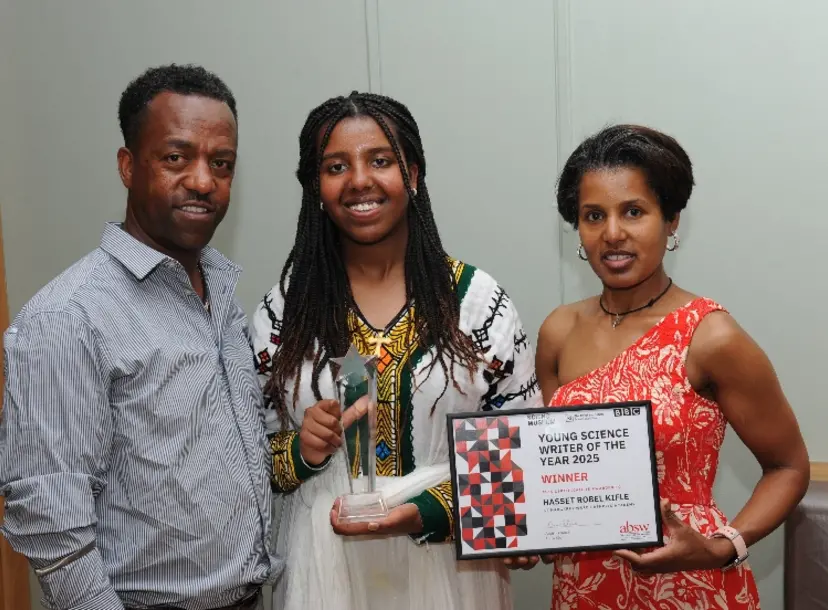Now in it’s fourth year, the Young Science Writer of the Year Award was established by founding partners the Association of British Science Writers (ABSW), the BBC, and the Royal Institution (Ri). As the 2025 winner Hasset was presented with her Award alongside two runners-up and 10 highly commended entries, at an event at the Science Museum in London. Hasset received a prize of £1000, a day’s experience at the BBC Science news desk, and a year’s Young Membership of the Ri.
Hasset used her personal experience as a competitive runner as her starting point for her article about the impact of ‘technological doping’, in the form of super shoes in elite sport. She explained how since such shoes were released records have been smashed, with the impact noticeable when the top three in the marathon at the 2016 Olympics were all wearing the new designs.
But Hasset also questioned the ethics of the super shoes, asking if they are giving unfair advantages to those who can afford them and whether there should be ‘separate lists for technology-assisted records’.
Over 600 students aged between 14 and 16 at state schools entered this year’s Award competition, with the winners being drawn from all over the UK, from Helston in Cornwall to Moray in the north of Scotland. Host of the Awards ceremony, Roger Highfield, Science Director of the Science Museum and honorary President of the ABSW, told the audience that the entrants had written about their subjects in “deeply personal and unexpected ways”.
Victoria Gill, BBC science correspondent, presented the awards and said that the articles by the runners up were “really impressive, with the courage to explore big ideas”. One of the runners up, Faizah Tasnim Suha, explored the question Is it a Good Idea to 3D Print the Heart? and decided that in some circumstances it could be. The second runner-up, Pippa Woodley, used her friend’s experience of painful and debilitating endometriosis to raise awareness of this condition, which has no cure and is still not taken seriously by many doctors.
The Young Science Writers Award is sponsored by the O’Brien family, with thanks to the Science Museum, The Week Junior Science+Nature, New Scientist, DK books and Staedtler and Stabilo.
